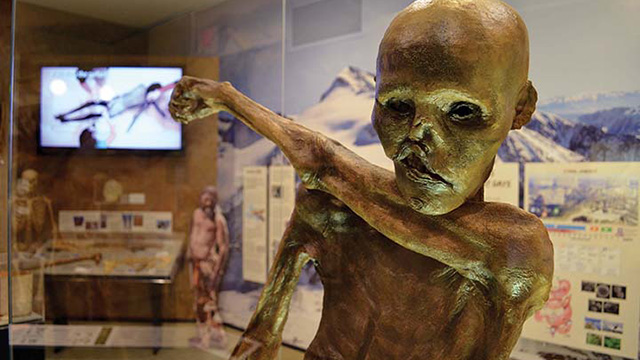
Open Events
STEM educational webinars, symposia, and activities from the DNALC and collaborators for students, educators, and the public.
(Past Event)
A Day in the Lab: Iceman Adventure
Veteran’s Day, Tuesday, November 11, 2025
Session I: 10:00 a.m.–12:00 p.m. or
Session II: 1:00 p.m.–3:00 p.m.
Ages 7–11, one adult chaperone required
Dolan DNA Learning Center, Cold Spring Harbor, NY
Come to the DNA Learning Center for some science fun while school is out!
Get ready for an icy adventure! Back in 1991, two hikers discovered a real-life mummy in the snowy Ötztal Alps. He became known as Ötzi the Iceman, and he lived over 5,000 years ago! Now, you can meet his 3D twin at the DNA Learning Center in Cold Spring Harbor. Solve fun puzzles and hands-on challenges in an "escape room"-style game. As you play, you'll find clues about Ötzi’s life. Then, visit the Our Human Inheritance exhibit to discover the big mystery and make your own awesome find!
Registration is required for this event.
- Veteran’s Day, Tuesday, November 11, 2025
- Session I: 10:00 a.m.–12:00 p.m. or
Session II: 1:00 p.m.–3:00 p.m. - Appropriate for children ages 7–11, one adult chaperone required
- $35/child or $50/two or more siblings from the same household, adult chaperone free-of-charge
- Dolan DNA Learning Center,
334 Main St, Cold Spring Harbor, NY 11724 - Directions



